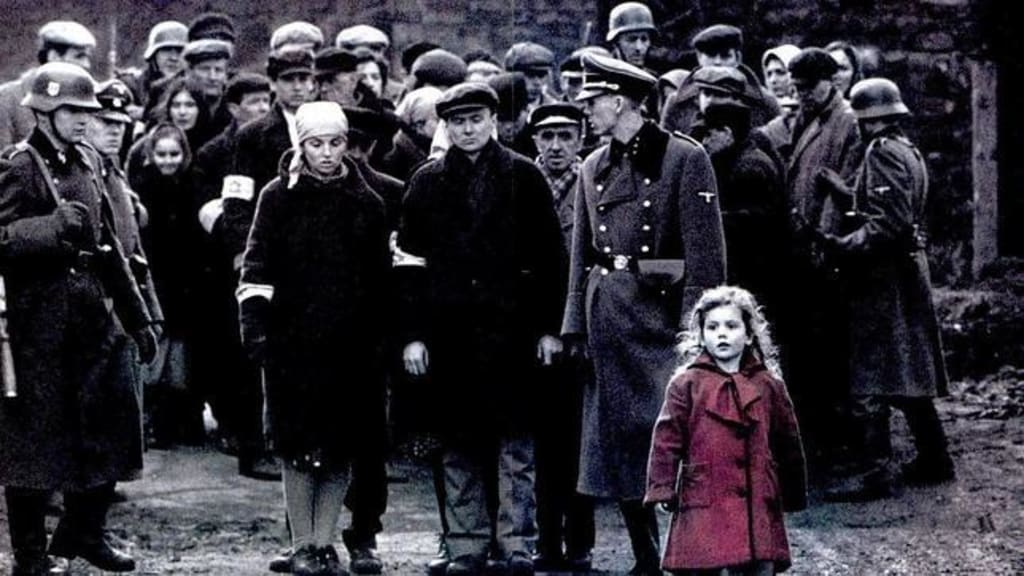
Oskar Schindler (Liam Neeson) was a bon-vivant , a cynic, a womanizer, a spendthrift, an unscrupulous merchant, and a Nazi. However, this German-Czech saved from the Plaszow extermination camp – run by the paranoid and cruel commander Amon Goeth (Ralph Fiennes) – the 1,100 Jews who worked in his factory in Krakow. Schindler sought to make his fortune during World War II by taking advantage of his friendship with the Nazi leaders and the capital and cheap labor provided by the persecuted Jewish community; but he ended up becoming a hero, at the cost of risking his life and property for his workers.
The true story of Schindler, according to the novel by Thomas Keneally, has served Spielberg to show his renewed Judaism and offer a film version of the Holocaust that wants to be definitive. The result is a splendid film, which goes beyond the conventional classifications. By the time these lines are published, the Oscars will have already confirmed what the Golden Globes, the North American Directors Association, the majority of critics have previously recognized... For now, there are their twelve nominations.
First of all, the sensational script by Steven Zaillian stands out. In 3 hours and 15 minutes – which go by in a sigh – Zaillian manages to condense a complex combination of intimate story and historical epic, in which dozens of characters and narrative threads come together with incredible naturalness, all of them of great dramatic depth. He is most amazed at his ability to integrate singular and risky bits of humor into all the appalling morass of moral and physical degeneracy that the story describes. And although the real motivations of Schindler and Goeth are not entirely clear, neither of them is cardboard-mache.
For his part, Spielberg brings his usual extraordinary narrative fluidity and sense of spectacle, albeit through a different visual style than his previous works. On the one hand, everything has been shot in black and white –in those colors the Holocaust is imagined–, with only two absolutely masterful incursions in color: the girl lost in the midst of the brutal eviction of the Jewish ghetto in Krakow and the first Sabbath celebration at the Schindler factory in Czechoslovakia. At this point, he shines with his own light the precious photography of Janusz Kaminski. Second, Spielberg gives the entire staging a vigorous documentary air. It seems that there is no artifice or planning, that he has really put his camera in the center of the tragedy to capture the decisive gestures, the most relevant facts. This film constitutes Spielberg's doctorate as a director, and in it he demonstrates, cum laude, his absolute mastery of cinematographic language. There are twenty or thirty complete sequences and hundreds of truly masterful scattered shots.
The interpretations are at the level of the display of nuances of the script and the conviction of the staging. If Liam Neeson, Ben Kingsley and Ralph Fiennes stand out, it is surely because they fill more screen time. The first two carry out the best works of his career, and the young and little-known Fiennes surprises with his portentous characterization of Amon Goeth. Nor should we insist on the quality of the score by veteran John Williams.
As for the tone, Spielberg has opted for a cutting verismo, which is shocking despite the fact that it flees from a nauseating hyperrealism. In this sense, his humanizing look at all the characters and his exaltation of the small and great virtues that flourish in the dunghills of evil created by Nazism are decisive. Spielberg only falls into an irritating lack of restraint by showing that Schindler and Goeth were womanizers. These obscene details have nothing to do with the pathetic nudity in the concentration camp. The epilogue in Israel is also excessive, with the survivors of the list. On the contrary, some reference to the many non-Jewish Poles who also suffered Nazi persecution is missing. At this point the film is very exclusive in its Judaism, although it highlights in some isolated passage the Catholic origin of Schindler. In short, they are slight flaws in a film that has almost all the ingredients of what is called a masterpiece.






Comments
There are no comments for this story
Be the first to respond and start the conversation.